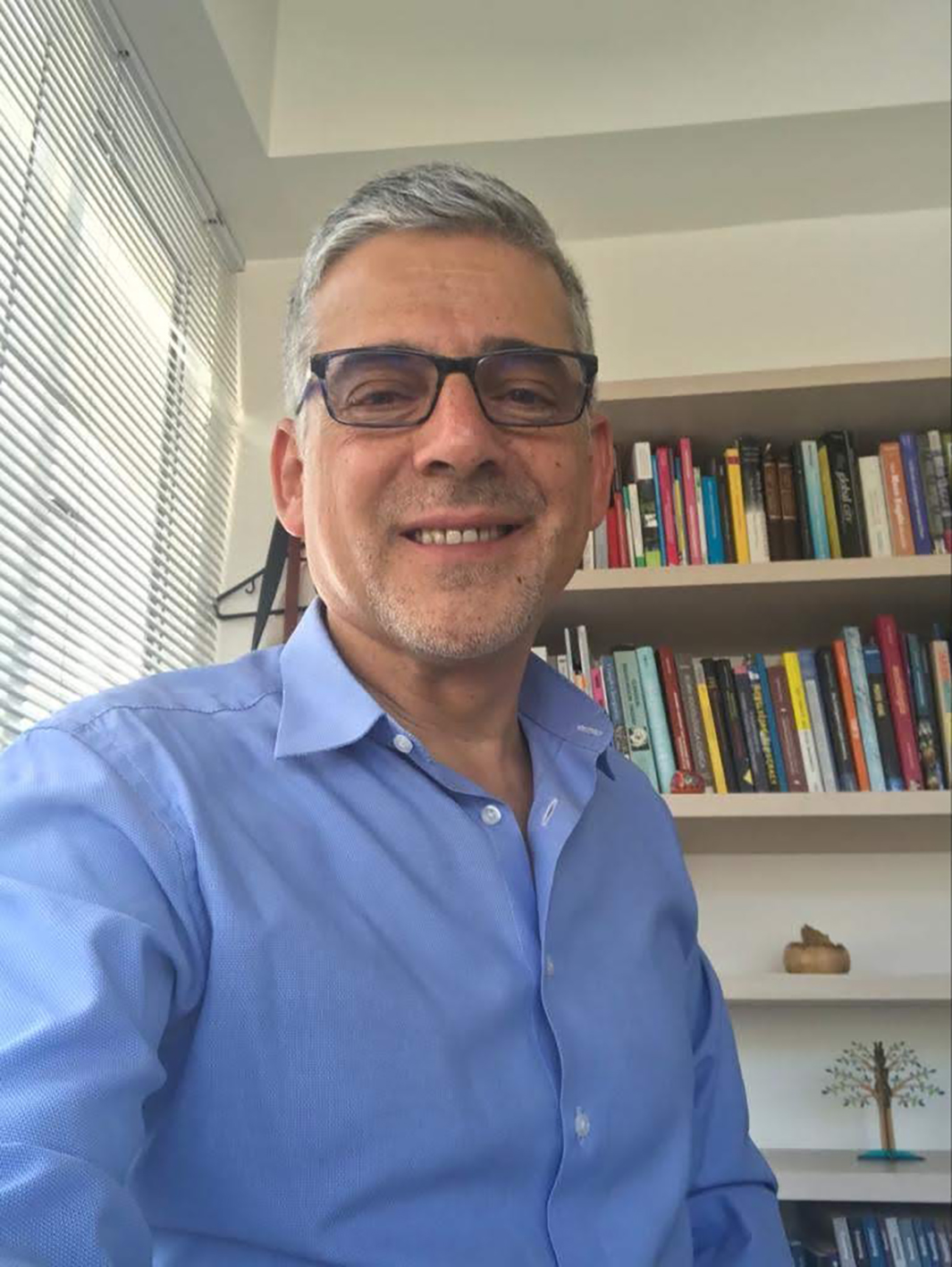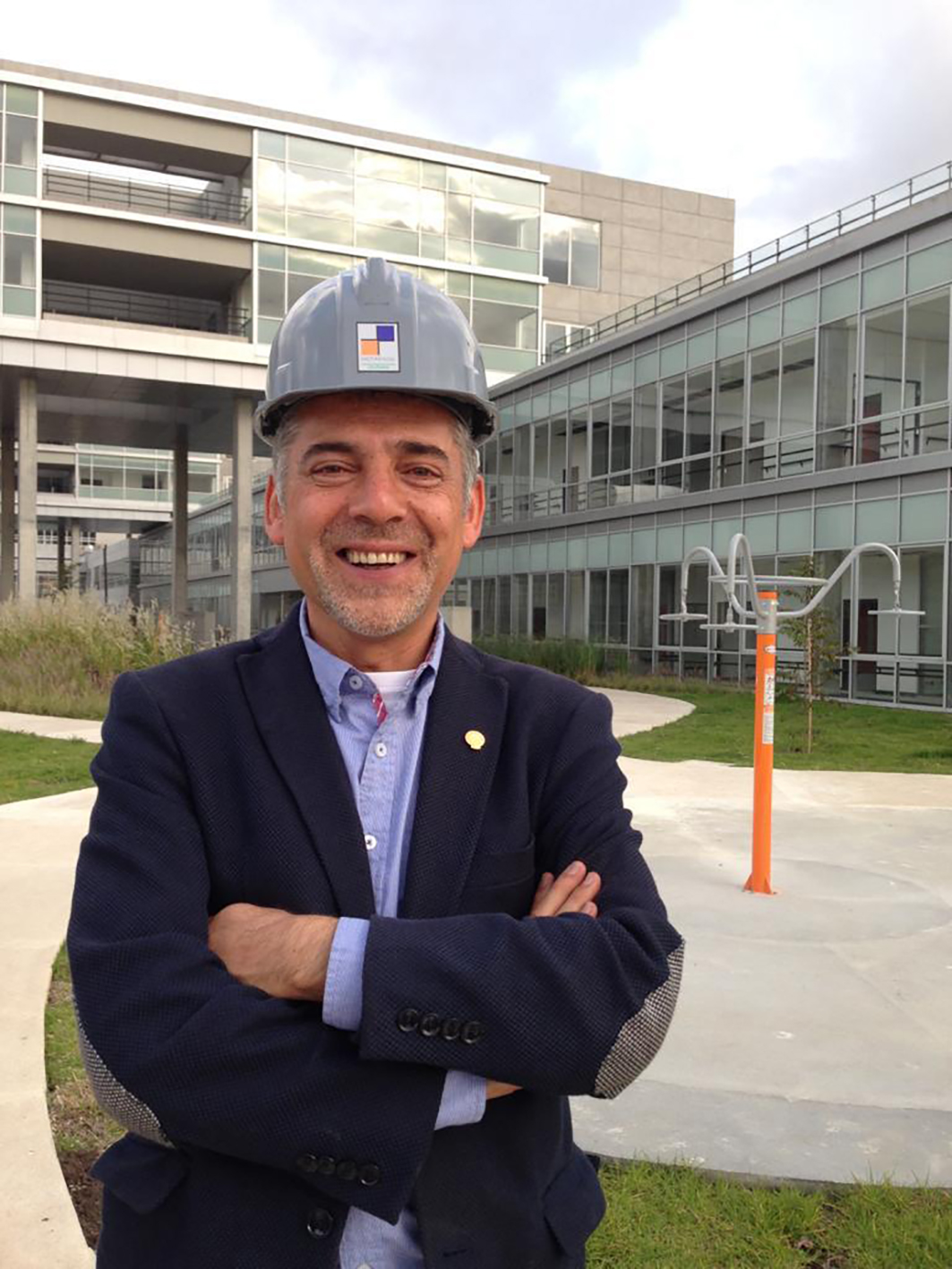Israel Cruz Velandia (1965 – 2022) A Visionary in Physiotherapy
By: Magda Páez Torres
Photos: Nora Cruz Velandia, URosario
Health and Wellness
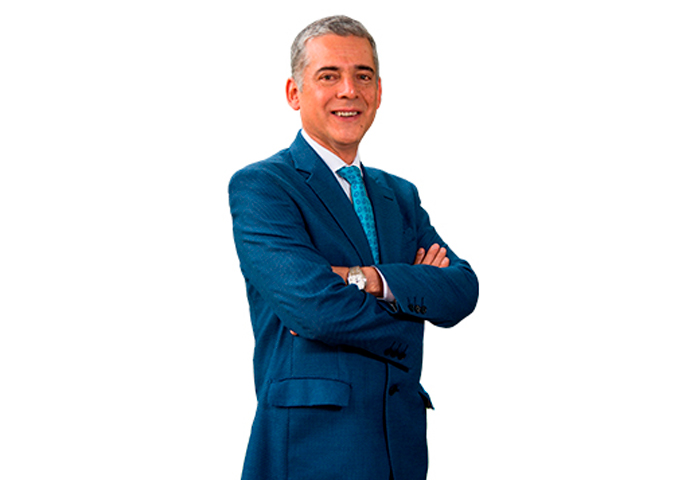
By: Magda Páez Torres
Photos: Nora Cruz Velandia, URosario
The legacy of Professor Israel Cruz Velandia is present in every hall at Universidad del Rosario, in the DNA of his students, in his multiple academic papers, in his voice immortalized in dozens of podcasts, in the recurrent morning coffees with his peers, and in the soul of graduates who learned to connect body and mind from him. “Isra,” as his friends called him, has not left us. His meticulous work in physiotherapy keeps him alive as an essential referent for a profession to which he tirelessly gave his days, up until April 14, 2022, when he passed at the age of 57 years.
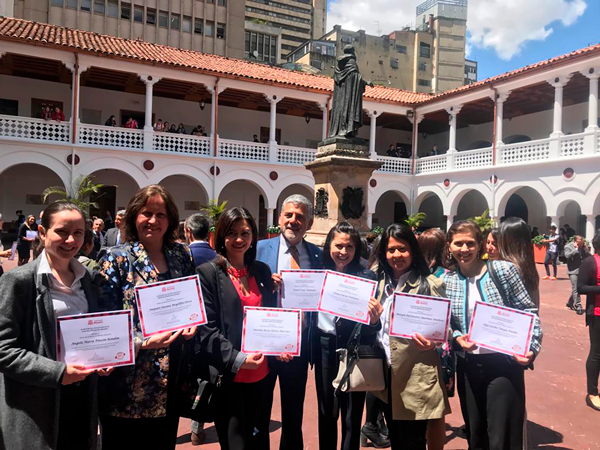
The community of Rosario defines him as a visionary, a cheerful man who loved art, cooking, and good conversations. He was a professional ahead of his times, a consecrated professor who was concerned about always providing content to physiotherapy.
“Israel, above all, was an educator par excellence, a teacher. He was always one step ahead of all of us, as the motto of Universidad del Rosario: ‘ahead in time’. And it was like this in many fields: in rehabilitation, education… I think he was a visionary in different areas,” commented, longingly, his colleague Luis Fernando Rodríguez.
In the universe of pedagogy, he was regarded as a leader in the full sense of this word. “I define him as a provocateur, an activator who not only transferred knowledge but also activated emotions,” comments professor Karim Garzón Díaz.
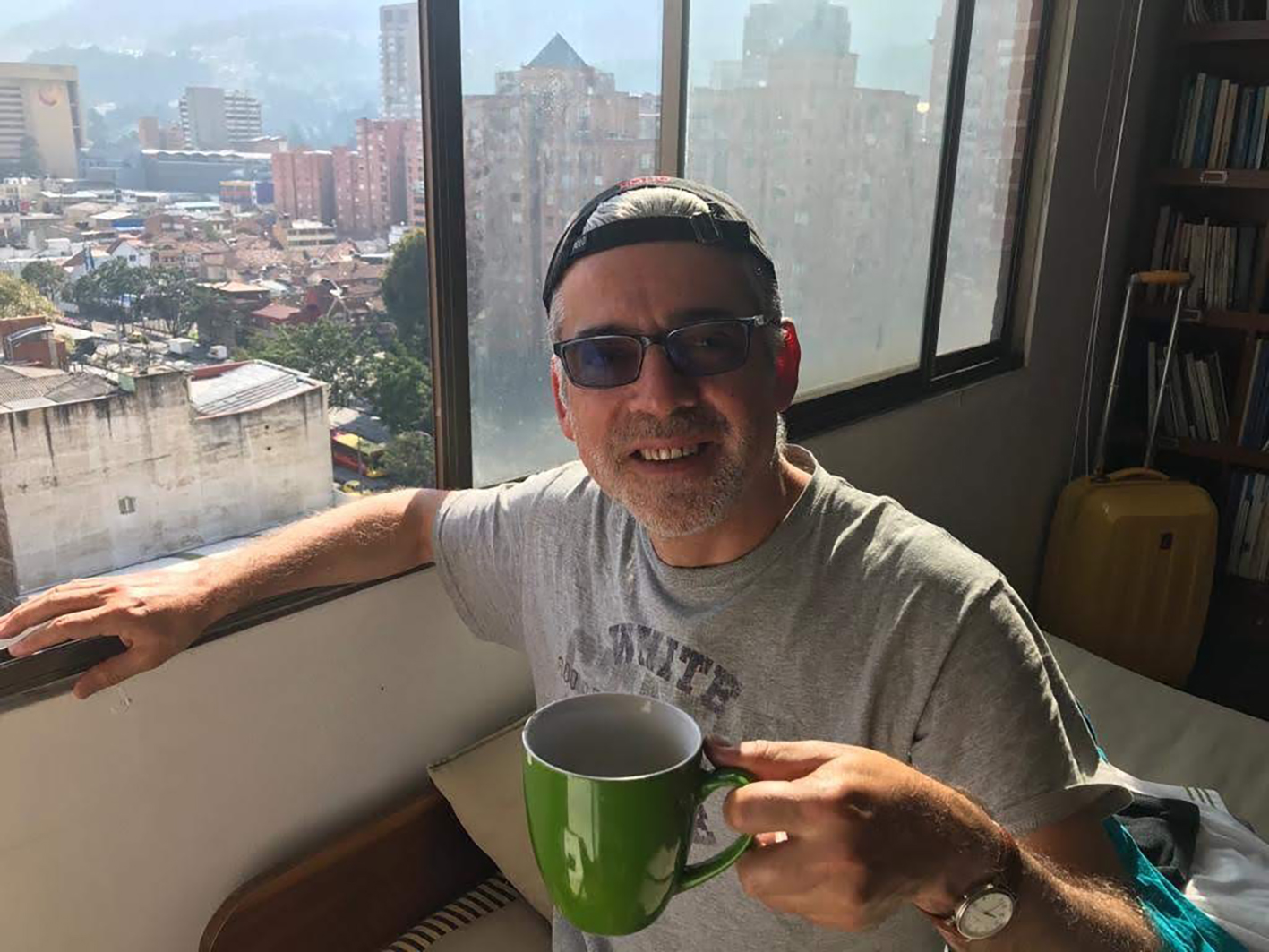
“Isra,” as his friends used to call him, has not left us; his meticulous work in physiotherapy keeps him alive as an essential referent of a profession to which he tirelessly gave his days. For the community of Rosario, he was a “transformative” person.
Her colleague Amparo Mogollón agrees as follows: “Israel was a visionary in unveiling the possibility to transform the field of action of physiotherapy and of all professions related to rehabilitation sciences. From the very beginning, he developed a disruptive vision in terms of saying that we ‘have to abandon that outlook of physiotherapy, speech therapy, or occupational therapy centered on a biological approach of the human being.’ He opened the door to a more humanistic vision.”
Dedication to collective health
Professor Israel Cruz finished his undergraduate studies in Physical Therapy at Universidad Nacional de Colombia (1988), and at the onset of his career, he worked in the cardiopulmonary area. Later, he worked on a Master’s Degree in Education at the Pontificia Universidad Javeriana (1995), and from there, as told by his colleagues, he set off on a journey towards collective health that he strengthened with a Doctorate in Public Health in Brazil (2001).
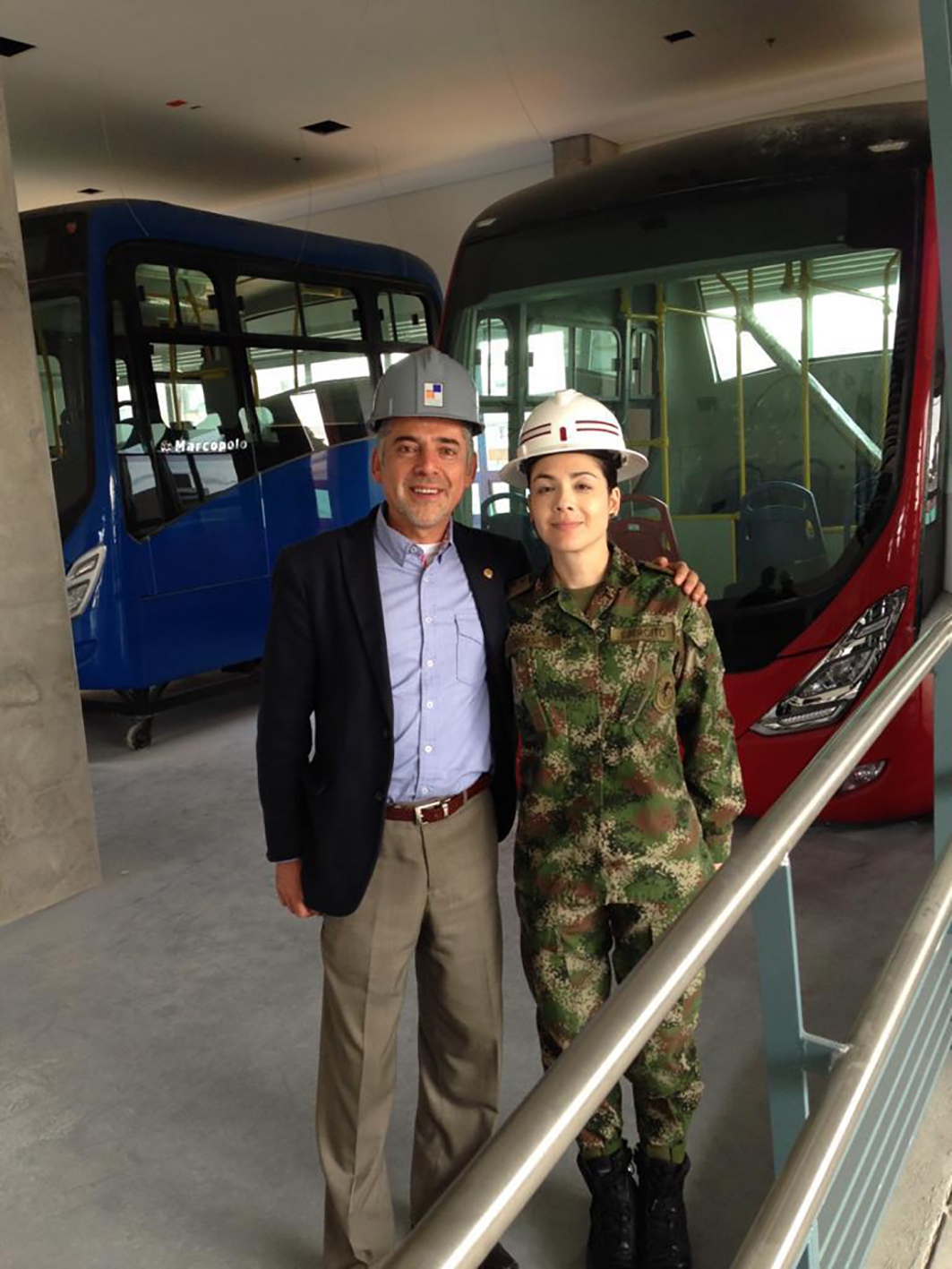
In the early 2000s, he returned to the country to teach at Universidad del Rosario and focus on the field that became his priority disabilities, an interest that materialized since his participation in the Research in Rehabilitation and Social Integration of People with Disabilities group. On this topic, he articulated several disciplines, such as medicine, speech therapy, occupational therapy, biomedical engineering, political sciences, and law since he conceived and developed a comprehensive concept for rehabilitation
“He was always deeply interested in disability, understood from a very social perspective; he wanted to generate a different view on this topic,” said his colleague Claudia Guarín. In this sense, he actively worked in the processes of creating public policies related to disabilities in the Capital District throughout 2006.
“We were convinced that our graduates could be very important agents to influence in the design of public policies, in how programs for people with disabilities are devised, in how organizations of people with disabilities are involved in decision-making,” adds professor Garzón Díaz. “It was a practical and conceptual shift on how disability is a topic solved from different points of view: not only from a health perspective but also from the view of economy, politics, and human rights. That’s when we started opening the horizon to generate other ways to think about the subjects in our curricula.”
Undoubtedly, Israel was born to leave a mark, always restless to achieve a better quality of life for people. He was a representative of the national and international certification of the Physiotherapy course at Universidad del Rosario, which he was a part of for over 20 years. There, he promoted curricular adjustments to take the profession and the program through the diverse and inclusive social path. He strengthened the Faculty’s research groups and participated in the design, formulation, and implementation of what we know today as the Centro de Rehabilitación Integral Inclusiva (CRI) for members of the Colombian Army and victims of the armed conflict, among other multiple contributions that will forever remain as an imprint of what his life was: a lesson of service.
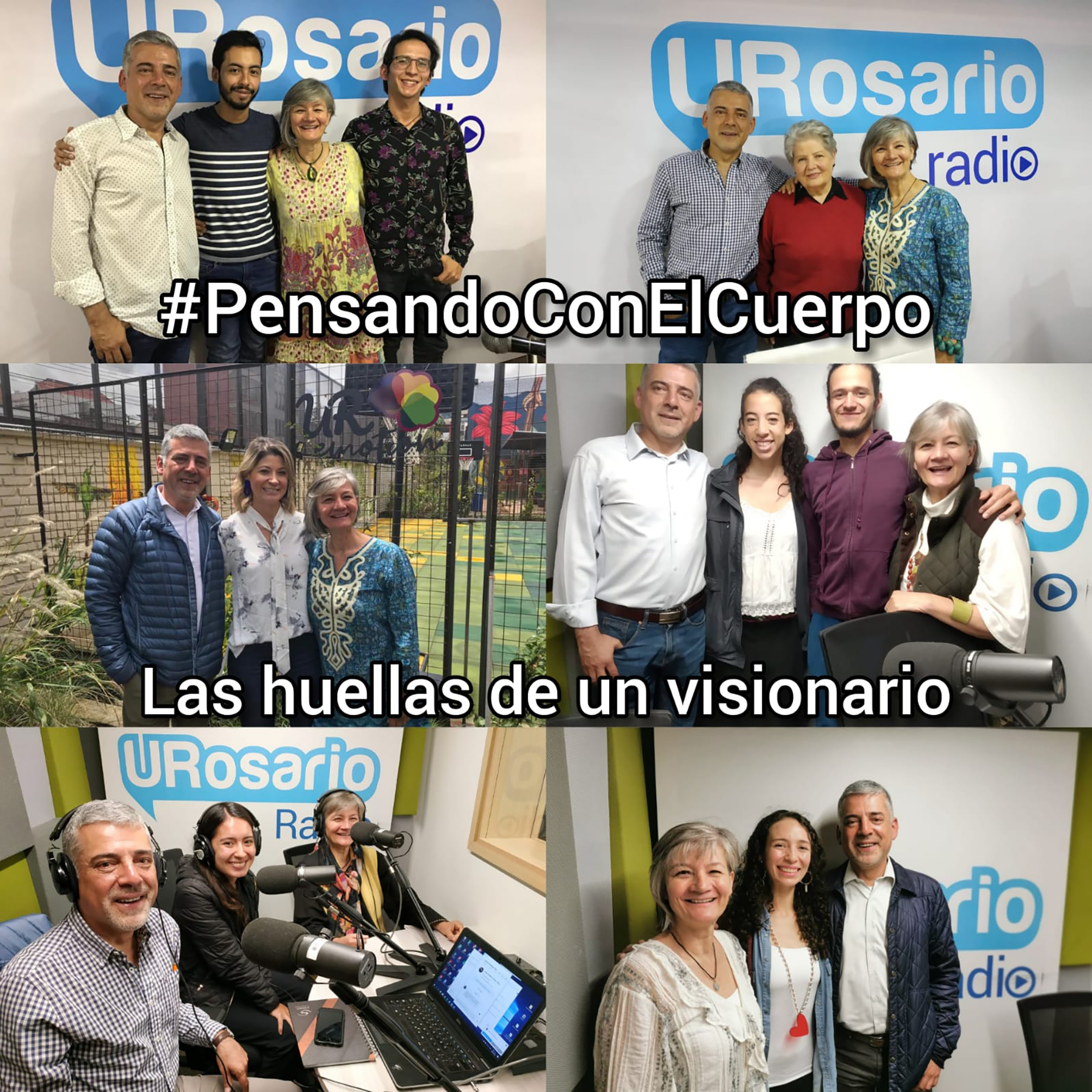
“Thinking with the body”
Professor Israel will also be remembered for always pushing his students to have an attitude to transform their surroundings. “His disciples loved and appreciated him dearly, especially because of his great openness towards social issues. He was an excellent human being,” said Sandra Fernández, administrative director of the School of Medicine and Health Sciences of URosario.
For Ana María Calderón, one of his students, professor Israel was an extraordinary counselor who encouraged his students to open the spectrum and to think beyond the physical factor. In her words, “Israel is physiotherapy.” Today, she remembers him as the man who gave value to the career she chose for life: “I had my first class with him when I entered university: Introduction to Physiotherapy. He was always very respectful, willing to hear us regardless of what we had to say, not only related to the career but also with life in general. He broadened our mind.” Ana María longingly recalls some of the wise lessons that the professor highlighted: “Physiotherapy is not just exercises, heat and cold. If you like law and helping people, broaden your mind because the most beautiful thing about studying physiotherapy is that you can have direct contact with people; you’re touching them, listening to them, and you have a wider, holistic approach. You must look at both sides of the coin.”
As Professor Rodríguez adds, Israel’s essence was to positively impact people’s lives and make professionals engage in making the world a better place. “He had a phrase for us and the students: he said we should shape political subjects. He always said: ‘We should take a step forward, look what will happen, and leave a thought so people always have something to wonder about’.”
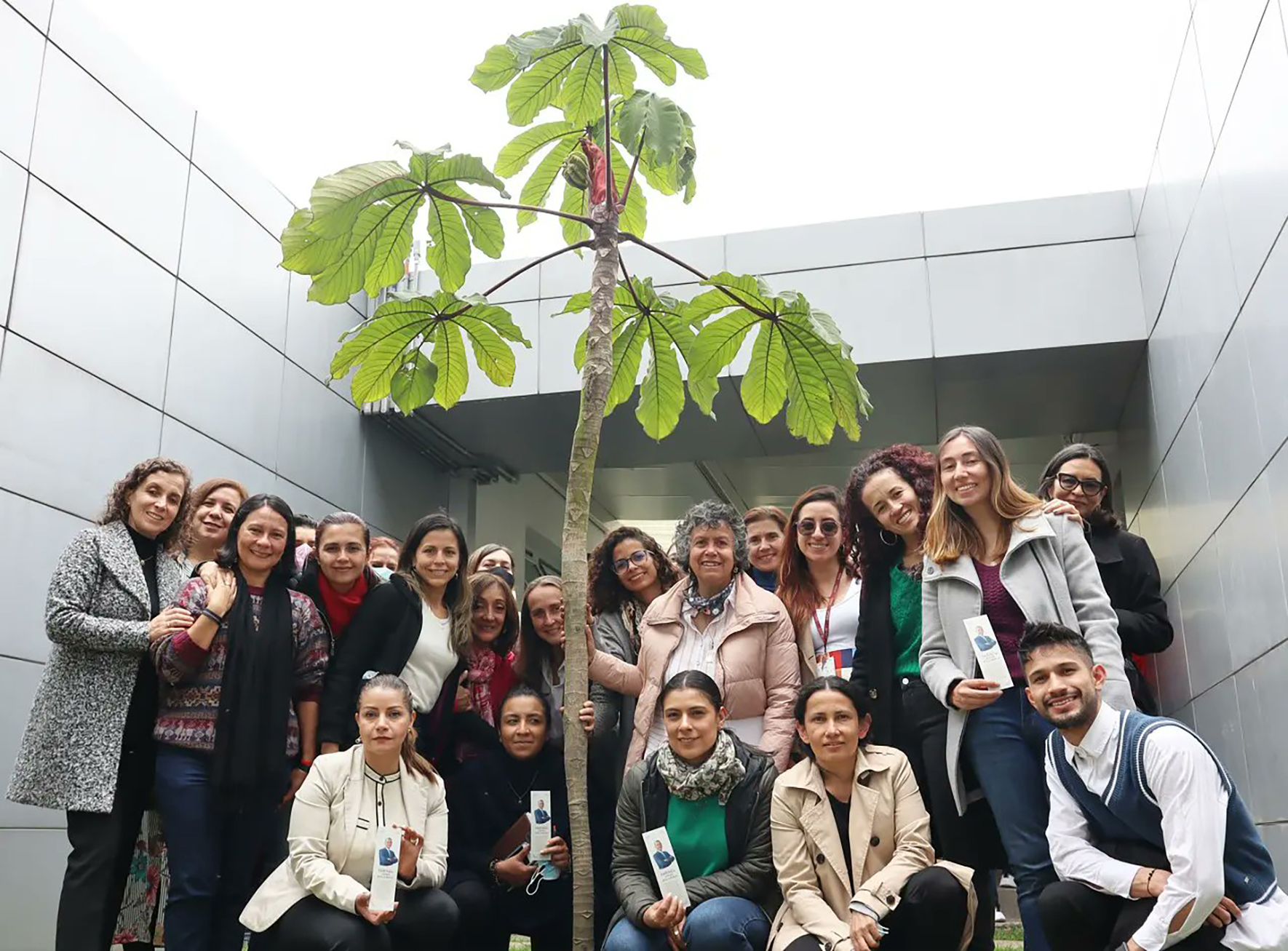
Nowadays, the seeds of Israel Cruz Velandia still grow into a Yarumo tree that was planted at Bosque Humboldt, located on Quinta de Mutis, Universidad del Rosario, as a homage to his life and his academic contributions.
This is why Karim Garzón describes him as a scenario provocateur: “He wanted to debate different theories and contrast them. He always let that curiosity in students for them to explore and develop their interests, for them to discover their particular projections. I still see it like that because I still feel it quite vividly.”
In similar words, the community of Rosario also thought that Israel Cruz was a “transforming” person. “I think that, when you have a conviction of what creates transformation, when you stimulate students to question themselves and question all things that surround them, you create transformation. In this sense, Israel promoted great change among students,” reflects Claudia Guarín.
In 2019, within his quest for transforming realities, together with professor Victoria Molina, he created a radio show called Pensando con el cuerpo (Thinking with the body), where they highlighted the holistic perspective of the profession to reach more students and the general audience every day. Recently, in the same space in the broadcaster at Rosario, his co-host paid homage to him with a special program titled Las huellas de un visionario (The traces of a visionary).
“Many feelings collide today… Let this be the space to honor his life and his work as a visionary man,” said his microphone partner to open an acknowledgment that continued with a recap of the different podcasts they recorded together.
Yearning friends
Besides his vocation and the seeds of change that he sowed in physiotherapy and his permanent intellectual curiosity, Professor Israel will be remembered by his broad smile, his sense of humor, his deep and constructive talking shops, how much he loved his family, and his passion for sports and arts, especially music and painting.
“There was a time in which he liked swimming– he swam quite a lot–traveling, and cooking. He also liked going out to cultural events, theatre plays, the movies… he liked hosting talking shops in his house on different topics. He was a devoted scholar for anything he did,” tells his friend Sandra Fernández.
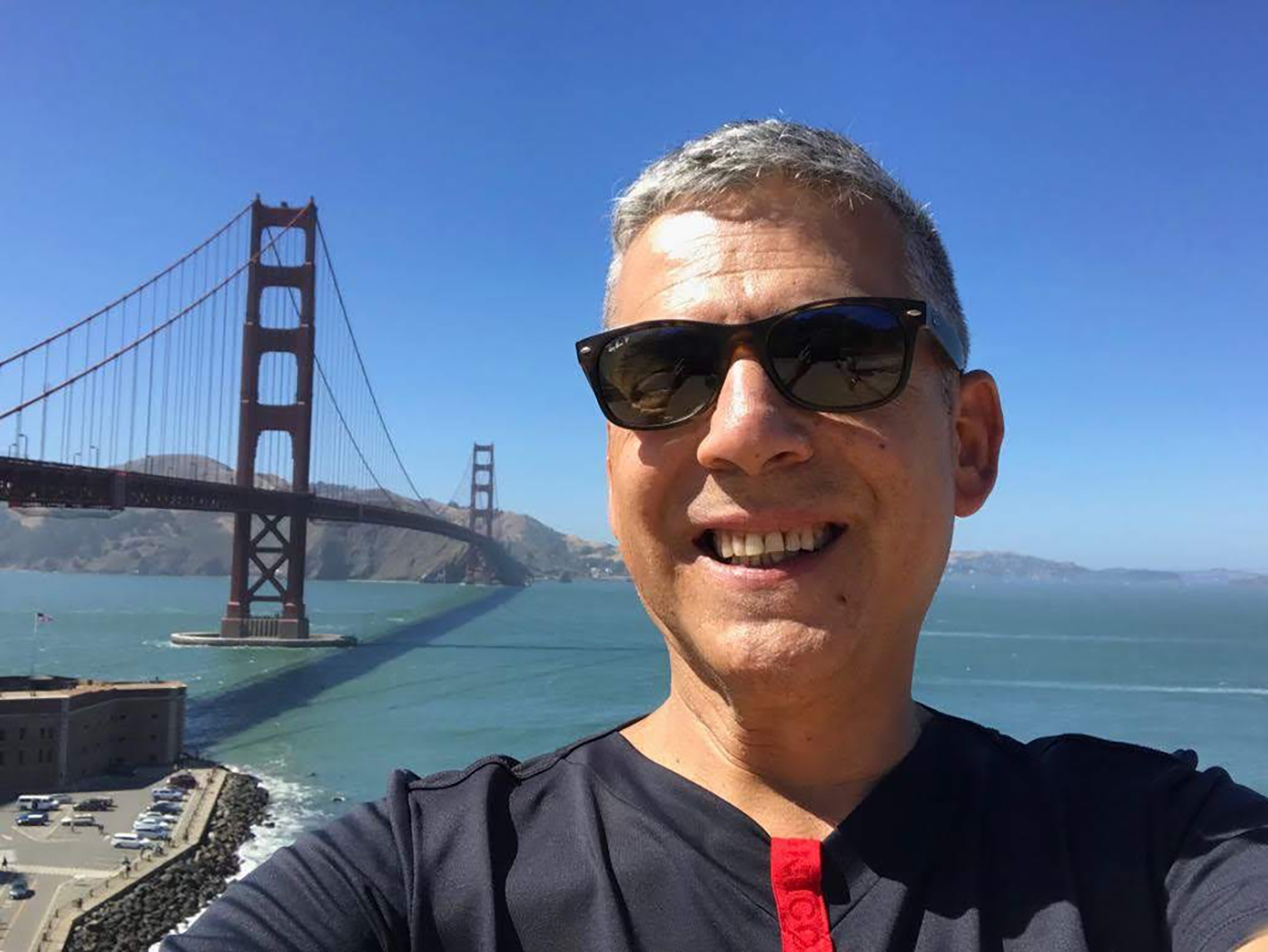
Beyond that invaluable heir, his friends will remember the day-to-day talks. Professor Guarín still misses deep conversations that they had wrapped by a hot cup of coffee, conversations that now she cherishes in a special place in her soul. As she puts it, it’s impossible for her voice not to break when remembering him. “We talked about countless topics. Above all, we laughed a lot. We had complicity with loads of humor. We talked about the divine and the mundane of the things we were going through, our surroundings, friendships, professional reasons, and our views on the profession. He was an excellent friend,” she comments.
In short, she misses the friend more than the colleague. “I feel the void when I arrive at university. I miss him. I miss having a cup of coffee with him. Without a doubt, he was one of those friends that were there for you for whatever you wanted. You just knew he was there. All these wonderful memories remain.”
Rodríguez also feels that same absence. When meeting Israel, he was just a student. But later, they met again as teachers. “We held ‘productive wine chats’; we called them ‘academic wine chats’, always thinking about what he liked, topics to teach, how to improve things. We also laughed a lot. His laughter was explosive and contagious. He laughed from the heart.”
Exactly there, in the heart, is where an infinite number of instant remains. Instants that will make people voices’ tremble but that will feed their souls and lighten the absence of someone who honored teaching and the meaning of friendship.
In his friends, an infinite number of instants remains to feed their souls and lighten the absence of someone who honored teaching and the meaning of friendship.
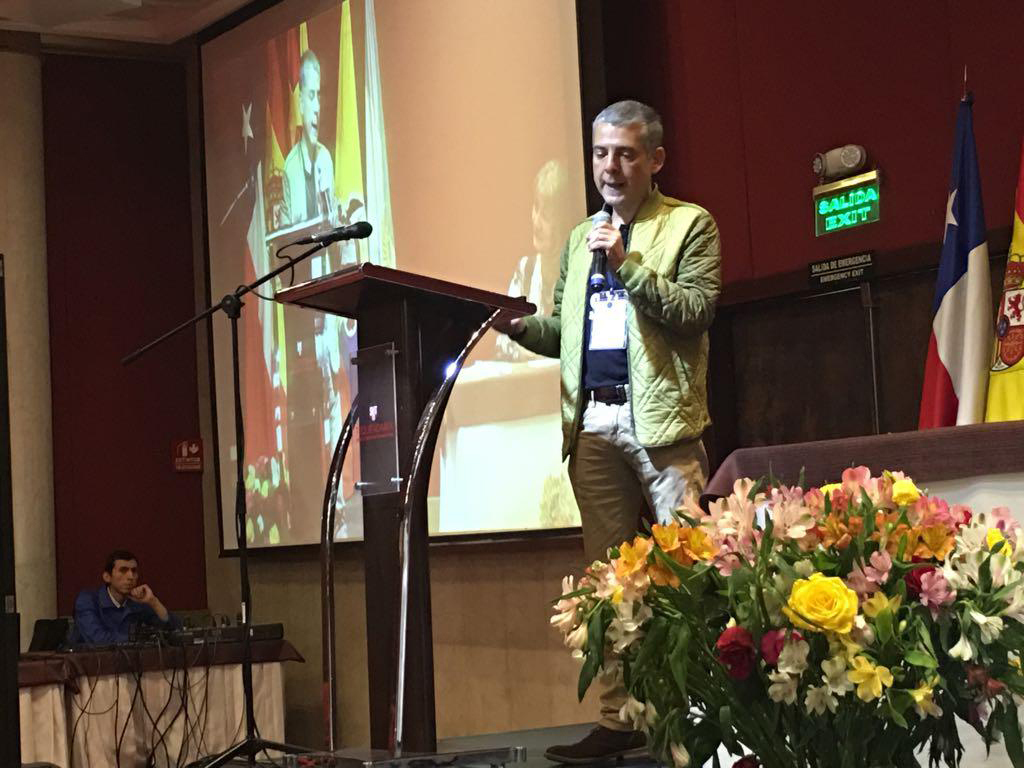
An unforgettable legacy
Colleagues, friends, work peers, and students. They all want to immortalize the legacy of Professor Israel, make his imprint last, avoid it being forgotten in time, and take it beyond these lines. Thus, they decided to pay a tribute that represents his life for him to keep enlightening future generations.
Today, his seeds are still bearing fruits in a tree that was planted at Bosque Humboldt, located on Quinta de Mutis, in the lands of Universidad del Rosario, by the Dean of the School of Medicine and Health Sciences, Gustavo Adolfo Quintero, together with the director of the Physiotherapy Program, Ingrid Tolosa, and the university community. “It is a yarumo. We wanted it to be a tree that really lasted, that showed flexibility, that recalled that mixture of physical quality and the sense of humanity that represented the kind of physiotherapist that he helped shape. A tree that had an extraordinary growth and that would be the first tree we could look at whenever we entered Bosque Humboldt,” comments Fernández.
That homage undoubtedly encloses the affection, gratitude, and industrious search to make professor Israel’s colossal legacy for the universal academy and health world last.
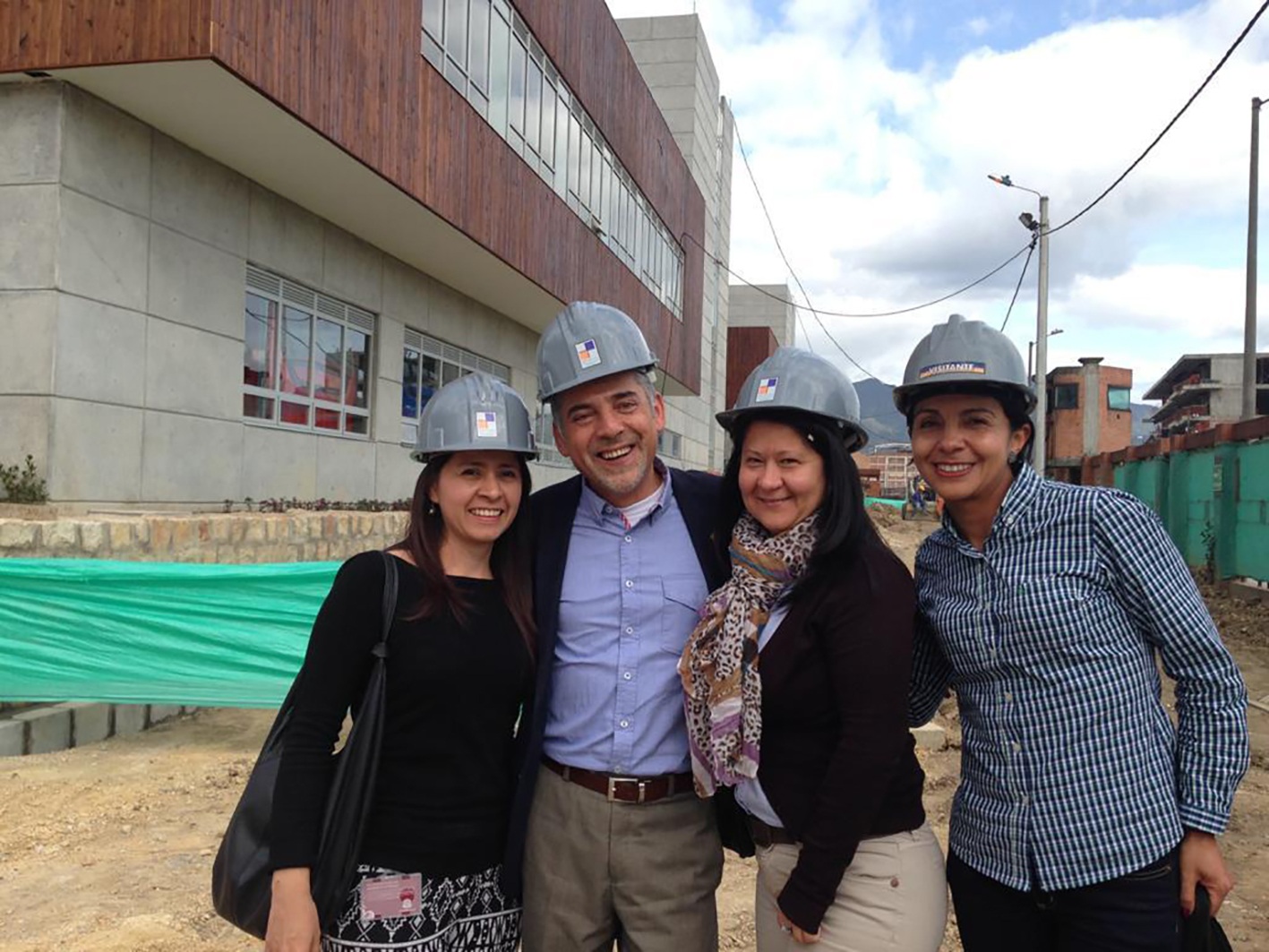
“His intellectual heritage is a daily boost for university. His profound belief in students and their capacities and his commitment to motivate them follow their dreams are unforgettable imprints.” “He leaves a huge union demonstration in society.” “He made several transformations at a Latin American level, marking a new direction for the profession, even with a global impact because he was part of the worldwide physiotherapy committees and a member of national and international union organizations.” “He showed us how to go beyond the subject matter of this profession towards all aspects of people’s lives.” These and many other phrases from Professors Karim, Claudia, and Luis show how death is not necessarily the end when life was dedicated to sow and then reap prosperity and future.
“Isra” stays forever. His legacy is immortal. His laughter, unforgettable. Undoubtedly, physiotherapy carries his name. In each colleague, in each graduate that, day after day, mystically and ethically applies his lessons is the reflex of a man that broke paradigms, that dared defying visions of the career and the world, that cared for seeing in patients not just a body, but a soul with needs that require a holistic attention, a human look.
